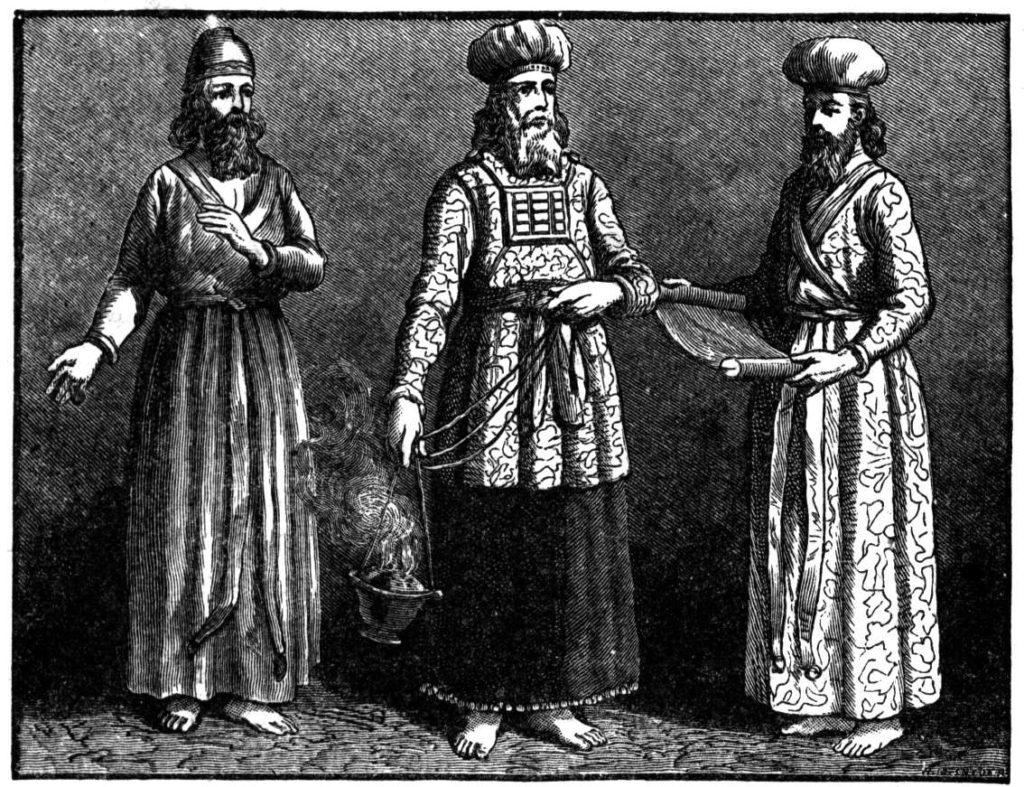
Psalm 49:1–14, This psalm is an evangelistic message to the unsaved. This entire psalm is a good basis for a sermon to the unsaved or spiritually lost.
Psalm 49:4, Dark sayings [or riddles] on the harp. Harp is the Hebrew word kinor from an unused root word meaning “to twang.” Poetic music is a though provoking way to “preach” the gospel; it touches the heart of man in a special way. This is because music is capable of bypassing the innate defensiveness of the mind and can go straight to the heart.
Psalm 49:7, None…can…redeem his brother. In that all men are of equal value before Elohim, a man can’t redeem his brother from the penalty of sin, which is death. One can only atone for his own sins by dying, and once dead, there is no more possibility of living, since the wages of sin is death. So there is no possibility of a man atoning for his own sins, much less those of another; this verse makes this truth clear.
Even if a man could live a sinless life, he could at best save only one other individual—that is, give his life in exchange for only one other sinner. Only Yeshua who was the Creator of all humans life (Col 1:16; Heb 11:3) could exchange his sinless life for all humanity, since common logic tells us the one who creates something is of more value than the sum total of all that he creates. This is why verse eight states that the redemption of men’s souls is costly, since it cost the life of the Son of Elohim, the Creator of all things. Only this costly sin sacrifice could redeem men from the pit of the grave and give men the gift of eternal life (verse nine).
Another point to consider in this discussion is that since Yeshua was born of a virgin and not of the seed of man, his nature wasn’t polluted or defiled by Adam’s sin nature. If he had not been born of a virgin, this would have disqualified him from being the perfect and blemish-free Passover lamb sin offering for the remission of men’s sins before the judgment seat of Elohim. Since the life of man is in his blood (Lev 17:11), and man’s blood was defiled by Adam’s sin nature, and since Yeshua’s blood didn’t derive from man, but from his Father in heaven, Yeshua’s blood was acceptable to a holy Elohim as the required atonement for the redemption men’s souls (Lev 17:11 cp. Isa 53:10). No man except Yeshua has ever met these criteria, thus no man other than Yeshua is qualified to atone for another man’s sin.
Because Yeshua was the blameless and sin-free Passover lamb, those who spiritually identify and unite with his atoning death through faith and the ritual of baptism for the remission of sins can now be presented as blameless as well before Elohim in heaven (Col 1:21–23).
Psalm 49:8, The redemption of the soul is costly. Indeed it is, for it cost Yeshua his life.
Psalm 49:9, Continue to live. In other words, the soul is not immortal.
Psalm 49:10–20, The senseless person. That which the world esteems is an inversion of the truth and reality and is, therefore, anathema to and enmity with Elohim (Jas 4:4). The redeemed are those who have come out of the confused mixture of light and darkness or good and evil (called Babylonianism) of what worldly people esteem (1 Cor 6:17; Rev 18:4), and who no longer esteem that which the unsaved foolish or senseless people esteem (i.e. wealth, the houses and monuments they create to last forever to honor their memory, as well as the lands they name after themselves, v. 11). This is the way of the senseless and foolish person (v. 12). The wise person knows that all humans death comes to all humans, and all die like common animals (vv. 11, 20). Only Elohim has the power to redeem our non-immortal soul from the grave (v. 15), so that a person will see the light of life again (v. 19) at the resurrection of the righteous dead.
Psalm 49:15, Redeem my soul. This verse tells us that the soul (i.e. the mind, will and emotion) is not immortal, but dies along with the body. Ezekiel confirms this truth when he declares that the soul that sins will die (Ezek 18:4, 20). Moreover Yeshua’s soul died as well, making atonement for man’s sin when it went into the grave (Isa 53:10–11) in fulfillment of Leviticus 17:11 which says, “For the life of the flesh is in the blood, and I have given it to you upon the altar to make atonement for your souls; for it is the blood that makes atonement for the soul.”
Shall receive me. To be received of YHVH Elohim as his a resurrected, glorified and immortalized child is a far greater reward than all the wealth, possession, fame, honor and glory this world has to offer a person.
“But Elohim will redeem my soul from the power of the grave: for he shall receive me. Selah.” This is a generic reference to the resurrection of the righteous dead. Using a kal v’khomer or light and heavy (a fortiori) rule of logic (or Hillel’s first law of Biblical hermeneutics or interpretation), we can reason that if the righteous dead are resurrected how much more so YHVH’s righteous Messiah?
Psalm 49:19, Light or light of life (see NKJV marginal reference). This is a Hebraic idiom for the resurrection of one’s dead body (cp. Ps 56:13; Isa 53:11).


